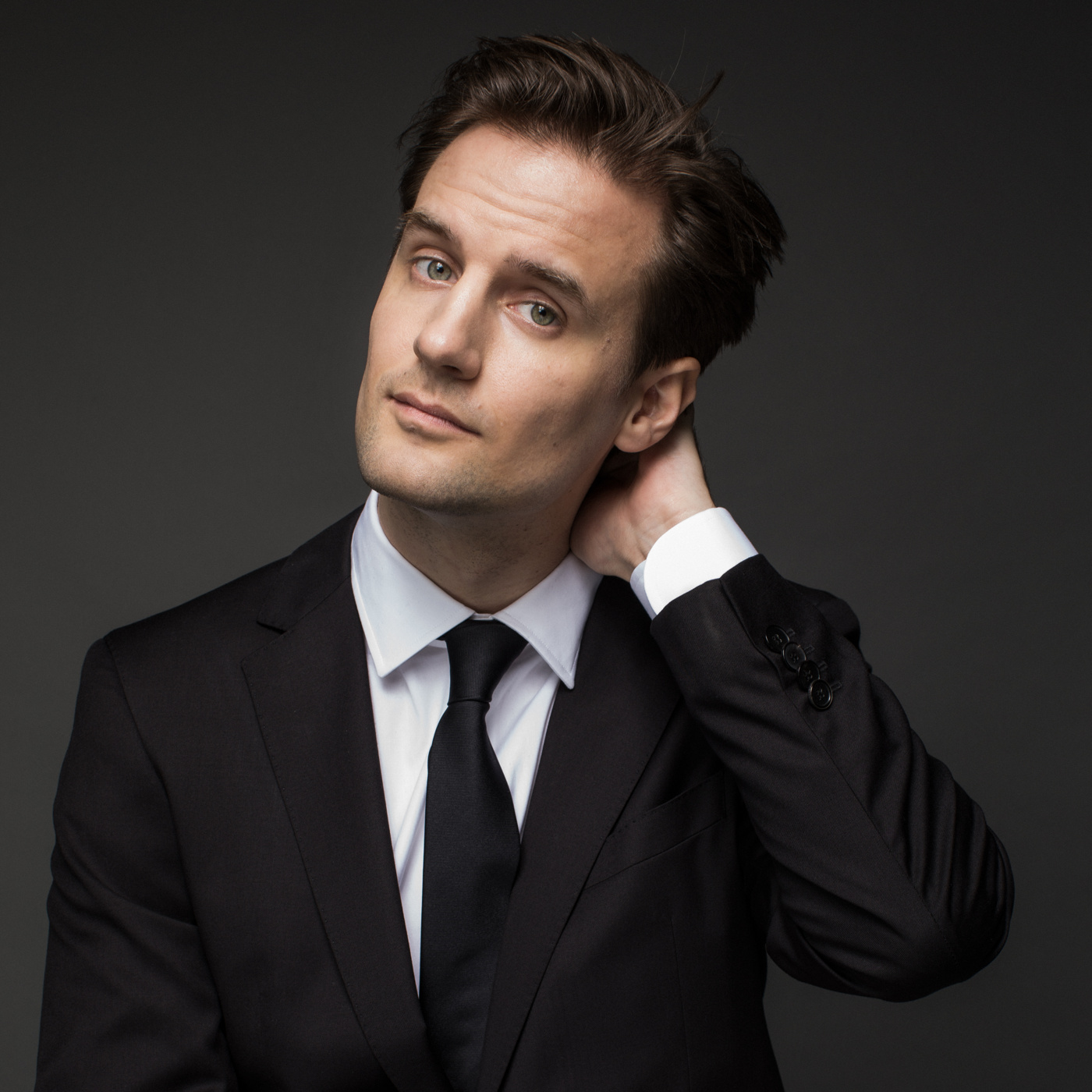Groan Ups Star Henry Shields on How It All Went Goes Wrong for Him on the London Stage

(Photo: Joseph Sinclair)
Henry Shields is an invaluable part of London’s invaluable and in-demand Mischief Theatre Company, having long doubled as both a writer and actor on such hits as The Play That Goes Wrong, Peter Pan Goes Wrong, and their current West End entry, the punningly titled Groan Ups, now previewing at the Vaudeville Theatre prior to an October 10 opening. These are busy times for the Mischief team. A BBC TV series and a separate stage collaboration with Penn and Teller are both pending, alongside other ventures that found Shields in buoyant conversational form one recent lunchtime with Broadway.com.
This is your second West End play, after the still-running The Comedy About A Bank Robbery, not to employ the Goes Wrong template of your earlier work. Are you moving away from that?
Those are a lot of fun to do and to write, but I think we now feel a slight resistance to having to do that sort of thing when we would like to feel that we can write anything: what we want is for the Goes Wrong stuff to be a springboard into other things.
Does that explain your current season-long tenancy at the Vaudeville in which Groan Ups will be followed in December by Magic Goes Wrong, on which you are collaborating with Penn and Teller?
The idea is for three plays back to back of which those are the first two. Given its attachment to the other Goes Wrong plays, it does feel as if Magic Goes Wrong will be the more popular of these titles and the producers are keen to get on. But as we at Mischief all get older, there’s certainly a desire to try and test ourselves and to balance comedy with serious drama, which is a tricky thing to do. I think we’ve done a pretty good job of it with Groan Ups.
What can you tell us about your character in this?
He’s called Archie and is someone who, as a youngster, is very openly gay and then we gradually see as he gets older those feelings becoming more and more repressed until we find him, at age 30, married and with children. Of all the characters in the play, he’s got probably the deepest story.

So, you’re testing Mischief’s ability to apply brakes to the jokes?
I think so. There’s a point in the play where we stop with the jokes and sort of boldly go for a drama about a closeted homosexual man coming out to his wife, and we hope that the audience goes with us. There will certainly be people who come expecting slapstick and may be confused but it would be great if those people could see that this can be more than silly, fun games.
How has it been rewinding the clock in Groan Ups to play your character at ages six and 14 as well as 30?
The style of the show is very much steeped in the bouffon school of [French physical theater and movement artist] Jacques Lecoq, in which a grown actor plays a child. A lot of it is based on physical regression where you start by putting your body into positions that are unnatural to an adult: it’s basically method acting where you spend the day pretending to be a child. At first, we thought that might be the entire play, but it can be quite wearing after a while to be adults playing children, so we thought, what happens if we move on?
Were you tempted at all to propel these characters into later life beyond the ages you are now [Shields is 31]?
We did consider having a fourth act where we show the characters in middle or old age but we thought we weren’t really qualified to do that. For us to have a stab at playing old people would be disingenuous when we can, in fact, play the ages we are in a very deep, emotional way: this play has quite a lot of strong emotion at its heart.
Did the title Groan Ups dictate the play or the other way round?
It’s very rarely that this happens with our stuff where everyone has a voice, but I can proudly say that I came up with [naming the play] Groan Ups all on my own! We were on a writing retreat and knew that we wanted the show to be a full-length piece about growing up, so the title came very early on.
What is the physical risk factor on this one, given Mischief’s track record over time of landing its actors with one or another injury?
This is much easier physically, which is probably a subconscious result through the writing of giving ourselves an easier time as we’ve gotten older and a bit more haggard. The fact is, we’re all injured now: Nancy [Zamit] has a broken foot, and I’ve got a herniated disc in my neck—
What a minute: so each time you’re in pain, you realize that it was self-inflicted by the demands of plays that you helped to write?
Yeah, that’s pretty much it. My condition regularly pains me, and I quite often think, “This is the price that has been paid for everything we’ve got.”
Where will Magic Goes Wrong fall on the “risk-to-self” spectrum?
We’re doing our own version of a sawing-in-half trick in which a woman gets killed: you’ll need to see the show to see how that works! I’m doing the sawing, of course, and don’t have anything particularly physical to do. If you pay attention at that show, you’ll find a lot of us older, ruined people standing around while the younger cast members do the levitating.
Where are Penn and Teller in all this?
Well, they’re not appearing live! What happened is that they came to see our shows in London—first Penn, who loved it and then sent Teller along and they got in contact and asked whether we would be interested in marrying up the two brands: their magic and our fun. The result is Magic Goes Wrong.
Is it safe to assume that one is earmarked for New York, following the ongoing success there of The Play That Goes Wrong?
We hope so. America looks to be where [Magic Goes Wrong] might really flourish, which is why we’ve knowingly put a lot of money and production values into it. And it’s got a cast of 10 or 11, which to us feels pretty huge. A set was built for us to do Peter Pan Goes Wrong [in the U.S.] but that's been put on hold. It's so difficult there to get a theater.
Is there American interest in your forthcoming six-part BBC TV comedy series, The Goes Wrong Show?
The plan is to get it on in America, though they might also want to remake the show with an American cast as happened with The Office—even if that’s not what we would choose to do. But American sensibilities can be different from British ones, so I’m sure they’ll be watching to see how it all goes when the [series] comes out here.
Meanwhile, how is it that Mischief continues as a solid ongoing group of collaborators and friends, seemingly immune to growing industry pressure to pull you in different directions?
It’s interesting, isn’t it? I don’t know how we’ve done it. We’re still all pretty good friends and there are no conflicting personalities, and we all still find each other very funny so there are no problems yet. Also, there’s not a lot of ego, which helps a lot to keep everybody happy.
One particular Goes Wrong question: has there ever been talk of a musical theater-themed Goes Wrong?
A few years back we were actually approached by the Rodgers and Hammerstein people to see if we might be interested in doing a Goes Wrong with one of their titles. It was an interesting idea, but we didn’t take them up on it at the time. Just think what you could do with The Sound of Music goes wrong!